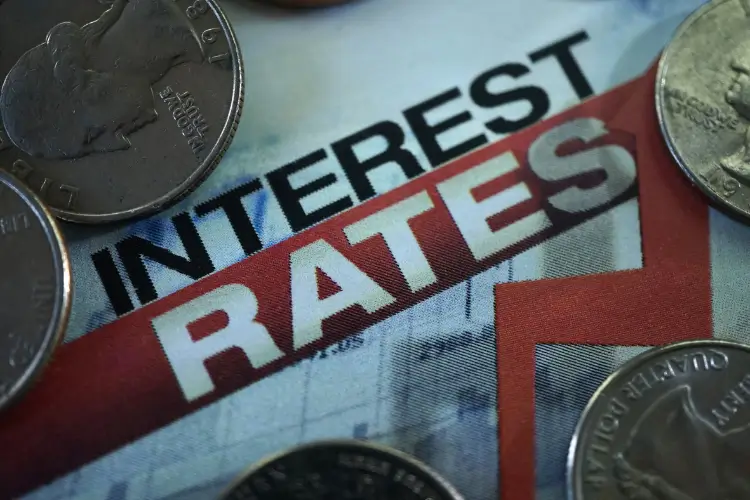Fixed Deposits (FDs) are a popular savings tool for many Indian investors. They offer safety, fixed returns, and easy management. Choosing the right bank or Non-Banking Financial Company (NBFC) for your FD is crucial.
What is a Fixed Deposit?
A fixed deposit is a widely used savings tool provided by banks and NBFCs. You invest a lump sum for a fixed period (known as the tenor) at predetermined FD interest rates. On maturity, you receive your principal amount along with the accumulated interest. You can do fixed return investment in Singapore that offer investors predictable income through instruments such as fixed deposits, Singapore Savings Bonds, and corporate bonds, providing stability in exchange for lower risk.
Benefits of Fixed Deposits
Here are some benefits of FDs you must keep in mind:
Safety
FDs are considered low-risk investments.
Fixed Returns
The interest rate is fixed for the entire tenor.
Liquidity
Some FD issuers allow premature withdrawal with a penalty.
Tax Benefits
Tax-saver FDs issued by banks qualify for tax deductions under Section 80C of the Income Tax Act, 1961.
Factors to Consider When Choosing an FD
When browsing best fixed deposit scheme in india, here are some factors you must consider:
Interest Rates
Compare the interest rates offered by different banks.
Tenor
Check the available tenors and choose one that suits your financial goals.
Reputation of the Issuer
Ensure the bank is reliable and has a good track record.
Premature Withdrawal
Consider the penalties and terms for premature withdrawals.
Additional Benefits
Some banks and NBFCs offer extra benefits like overdraft facilities against FDs.
Comparative Analysis of FD Interest Rates
Here is a comparison of interest rates offered by various banks and NBFCs as of July 2024:
| Issuer | Interest rate p.a. |
| State Bank of India | 3.50% – 7.50% |
| HDFC Bank | 3.00% – 7.75% |
| ICICI Bank | 3.00% – 7.75% |
| Axis Bank | 3.00% – 7.75% |
| Ujjivan Small Finance Bank | 3.75% – 8.75% |
| YES Bank | 3.25% – 8.50% |
| Mahindra Finance | 7.50% – 8.35% |
| Bajaj Finance | 7.40% – 8.85% |
Note: These rates are subject to change at the bank’s discretion:
As you can see, both banks and NBFCs offer competitive interest rates. Those of Mahindra Finance FD rates or Bajaj Finance FDs are typically higher than banks. However, FDs of up to ₹5 Lakhs with a bank (per depositor) are insured by the Deposit Insurance and Credit Guarantee Corporation.
Taxation on Fixed Deposits
Interest earned on FDs is taxable. The interest is added to your income and taxed according to your income tax slab. Tax Deducted at Source (TDS) is applicable if the interest exceeds ₹40,000 in a financial year. This limit is for individuals. For senior citizens, TDS is applicable if the interest exceeds ₹50,000. Banks deduct TDS at 10% if PAN is provided. Without PAN, TDS is deducted at 20%.
Premature Withdrawal and Penalties
Premature withdrawal of an FD means breaking the FD before the end of the agreed tenor. Most banks allow this but charge a penalty. The penalty can be a reduced interest rate or a flat fee. It’s crucial to understand the terms of premature withdrawal before investing.
Loan Against FD
Some banks offer loans against your FD. This allows you to borrow money by using your FD as collateral. The interest rate on such loans is usually lower than personal loans. This can be a helpful feature if you need funds but don’t want to break your FD.
Making the Right Choice
When choosing the best bank for Fixed Deposits, consider your financial goals, the tenor of the investment, and the features offered by each bank. Here are some recommendations based on different priorities:
- Highest Interest Rates: If your primary goal is to maximise returns, choose a bank that offers slightly higher rates compared to other banks.
- Reputation and Stability: For those prioritising financial stability and reputation, opt for banks with an established credibility.
- Flexibility in Withdrawal: Select a bank that offers lower premature withdrawal penalties. This could be suitable for investors who may need access to their funds before maturity.
- Senior Citizens: Senior citizens should consider banks offering special rates which provide higher returns compared to standard rates.
Steps to Open a Fixed Deposit
Opening an FD is a straightforward process. Here are the steps:
Choose the Issuer
Decide on the bank you wish to book an FD with.
Select the Tenor
Choose the tenor that aligns with your financial goals.
Fill the Application
Complete the FD application form, which can be done online or at the branch.
Submit Documents
Provide necessary documents like identity proof, address proof, and PAN card.
Deposit the Amount
Transfer the amount to be fixed.
Fixed deposits are a safe and reliable savings tool. Choosing the right bank for your FD requires careful consideration. Evaluate the interest rates, tenors, and other benefits offered. Compare the offerings of various issuers to make an informed decision. This will help maximise your returns while ensuring safety and liquidity.




